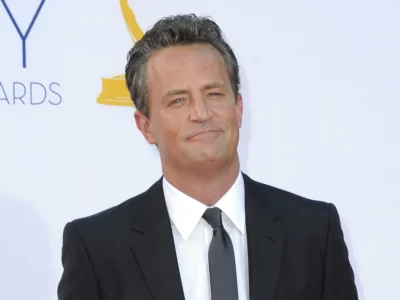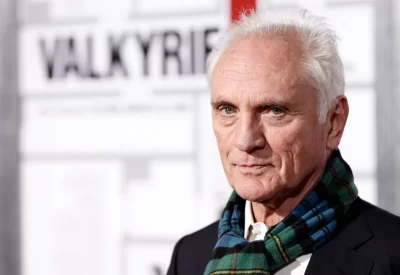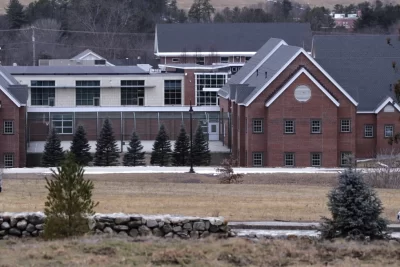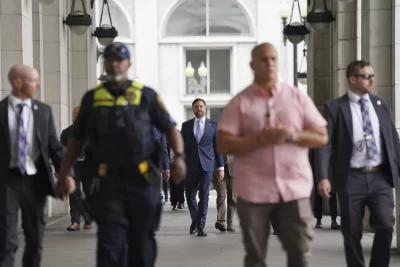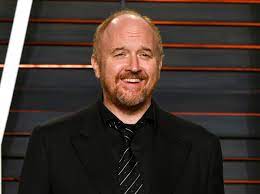
Louis C.K. came to the Toronto International Film Festival six years ago with the hotly anticipated “I Love You, Daddy,” just as allegations of sexual misconduct against the comedian were gaining new prominence.
The movie sold at TIFF for $5 million, but before it could reach theaters, its premiere was canceled and its release scuttled. After years of rumors, a New York Times article in November that year detailed the allegations of several women who described incidents in which C.K. masturbated in front of female stand-up colleagues.
Now, a new documentary premiering in Toronto, where C.K.’s downfall began, is delving into one of most debated #MeToo cases. “Sorry/Not Sorry,” directed by Caroline Suh and Cara Mones and produced by the Times, examines the allegations, the fallout for those who came forward and C.K.’s comeback in comedy.
“In the early years, the advice I was given was: Don’t make this movie,” says Suh, who directed the Barack Obama-narrated docuseries “Working: What We Do All Day.”
Suh, herself, was a big fan of Louis C.K. and she didn’t immediately register the allegations against the comedian as damning — especially in comparison to other #MeToo cases like Harvey Weinstein and Bill Cosby.
“Sorry/Not Sorry,” which was acquired by Greenwich Entertainment for distribution after its TIFF premiere, reexamines the scandal and its aftermath, particularly in light of C.K.’s thriving comeback. The comic, who acknowledged “these stories are true” in his 2017 apology, won a Grammy for best comedy album last year and in January sold out Madison Square Garden.
To Mones, it appeared that many people seemed hesitant to talk about the thorny issues of consent and power when it came to C.K. — and that was a good reason to make the film.
“This lived in a gray area for so many people. That felt unusual among all the stories that were starting to come out,” says Mones. “There are a lot of questions to explore.”
The filmmakers especially wanted to detail the experience of the women who went public with their encounters with C.K. Some struggled to find success in comedy afterward or were heckled online by his supporters. Comedian Abby Schachner, who notes C.K. didn’t ask permission before masturbating while talking to her on the phone in 2003, speaks about her fears of being publicly defined by the scandal.
“There were questions to be asked and perspectives to be brought forth. And those perspectives are really of the women who came forth,” says producer Kathleen Lingo. “What happens when a woman says the truth? What happens to her?”
There are several notable people from the comedy world interviewed in the film, including comedian Jen Kirkman, who first alluded to some of C.K.’s behavior in a podcast in 2015. Comedian Megan Koester, “Parks and “Recreation” co-creator Michael Schur and Noam Dworman, owner of New York’s Comedy Cellar, also appear in the film.
But it’s also notable who isn’t in the film. Louis C.K. isn’t interviewed and didn’t respond to the filmmakers’ requests to comment. And the filmmakers say nearly every prominent comic they reached out to didn’t want to be interviewed.
At the same time, C.K. has returned to stand-up and often performed material about the scandal. In his 2020 self-distributed special “Sincerely Louis C.K,” he began by asking the crowd about their last few years. “Anybody else get in global amounts of trouble?” he said.
Later in the special, he more specifically addressed the misconduct incidents.
“If you want to do it with someone else, you need to ask first,” said C.K. “But if they say yes, you still don’t get to go ‘Woo!’ and charge ahead. You need to check in often, I guess that’s what I’d say. It’s not always clear how people feel.”
Whether comments like these have been enough to constitute atonement is one of the overarching questions of “Sorry/Not Sorry.”
“Our intent was to make a film that was very fact-based,” says Suh. “We don’t want to speculate: Why did he do this? Just laying out the facts might be helpful.”
“Sorry/Not Sorry,” which is expected to be released next year, arrives after a series of setbacks for the #MeToo movement. The filmmakers are hoping to refocus the conversation.
“It feels like every time there’s a news event, it’s like: ‘#MeToo is failing’ or ‘#MeToo is succeeding,’” says Lingo. “It’s been, what, six years, and I think it’s an incredibly groundbreaking movement. We’re still in the middle of it.”


